How to Tackle Constructed Response, Multiple-Choice & Clustered Questions
Congratulations! You have taken the first step in furthering your career as an educator by planning for your teacher certification exam. Preparing for and passing certification exams is an integral and imperative part of becoming a teacher or furthering your teaching career by earning additional certifications through examination. Either way, success on the certification exam is essential.
What is on Teacher Certification Exams?
When taking a teacher certification exam, candidates may encounter the following question types:
- Constructed response
- Multiple-choice
- Clustered responses
To achieve success in each section, it is essential to understand what the section covers and how to effectively master it.
1. Constructed Response
Constructed response questions require you to write a detailed answer, often explaining concepts, providing examples, or demonstrating how you would apply your knowledge in a classroom setting. Often, but not always, Constructed Responses include a set of exhibits that the candidate will need to analyze before writing their response. If exhibits are present, the candidates will be expected to reference those exhibits in their responses.
Tips to Master Constructed Response:
- Understand the Prompt: Carefully read the question and ensure you understand what it’s asking. Look for keywords like “explain,” “describe,” or “compare.”
- Plan Your Answer: Before you start writing, quickly outline the main points you want to include. This will keep your response focused and organized.
- Be Specific: Provide concrete examples that demonstrate your understanding of the subject matter. General statements can weaken your answer.
- Stay on Topic: Focus directly on what the question asks. Avoid rambling or including irrelevant information.
- Review and Revise: If time allows, go back and check for any spelling or grammatical errors, and ensure your ideas are clear and well-structured.
2. Multiple-Choice
Multiple-choice questions typically assess your ability to recall facts, recognize concepts, and apply your knowledge to different scenarios.
Tips to Master Multiple-Choice:
- Read All Options: Always read all of the answer choices before selecting one. Sometimes, a seemingly correct option can be overshadowed by another, more accurate one.
- Eliminate Obvious Wrong Answers: Start by eliminating the answers you know are incorrect. This increases your chances of selecting the right one if you have to guess.
- Look for Clues in the Question: Pay attention to the wording in the question that may hint at the correct answer. Words like “best”, “most,”,” or “most likely” can give you insight into which option fits best.
- Know Common Distractors: Be aware of common distractors, like answers that are true in some cases but not in the case the question addresses.
- Guess Strategically: If you’re unsure, make an educated guess based on what you know. If all else fails, go with the option that feels most consistent with your knowledge of the subject.
3. Clustered Responses
Clustered response questions present a series of related questions or tasks that share a common theme, often requiring you to analyze, interpret, or apply multiple concepts. Clustered response questions often use exhibits where the candidate will need to analyze information and answer a series of questions based on that information.
Tips to Master Clustered Responses:
- Analyze the Entire Set: Before answering, read through all the questions in the cluster. This will give you a sense of the theme and ensure consistency in your responses.
- Group Related Questions: Identify connections between questions within the cluster, and respond to them as a group to maintain coherence.
- Stay Organized: Keep your answers clear and organized. Break them down into parts if necessary to address each sub-question within the cluster.
- Focus on Key Concepts: Each question in the cluster will likely target a specific concept or skill. Make sure to address each of these clearly in your responses.
- Answer Sequentially: If the cluster builds on earlier questions, make sure you answer them in a logical, step-by-step order to maintain clarity and consistency.
The Importance of Studying
To truly prepare for teacher certification exams, you need to master two key areas: effective test-taking techniques and the specific content of the exam. Passage Preparation™ is an excellent partner to help you master the material and strategies needed for success on the test. Teacher certification exams focus on both your pedagogical understanding and your mastery of the content. Enrolling in a Passage Preparation course tailored to your specific exam provides the content knowledge and pedagogy support you need to succeed. Remember, effective preparation and strong exam performance still require dedicated study.
How to Excel in Your Passage Preparation Course
The first step towards success on the teacher certification exam is enrolling in a Passage Preparation course. After enrolling, use the expertly crafted modules as your study guide. Manage your study time, aim to spend approximately one hour per session. Though you may need additional time for certain sections or the practice assessment at the end of the course. Before each study block, identify the specific content, competencies, and modules you plan to focus on to maximize your engagement with the material. The diagnostic assessment provided by Passage Preparation in your course will help you create a personalized study plan by highlighting the areas you should prioritize based on your results, ensuring a targeted approach to your preparation.
Through our expertly crafted curriculum, Passage Preparation is the most effective tool to help you succeed:
- Expertly Designed Courses: Passage Preparation offers a variety of test prep courses designed by educators. These courses focus on the exact content and skills needed for each exam, providing the most relevant and up-to-date study material.
- Practice Tests: Your Passage Preparation course provides practice exams that include all three question types- Multiple Choice, Constructed, and Clustered Responses simulate the real test experience, allowing you to familiarize yourself with the exam format and time constraints. This practice will help you approach the actual exam with confidence.
- Targeted Study Plans: Passage Preparation provides personalized study plans that cater to your specific needs, whether you need to focus on a particular section of the exam or review broader concepts.
- Proven Success: Passage Preparation has helped thousands of educators pass their exams and achieve their certification goals. Many users rave about the platform’s ability to guide them through the test prep process with ease. For more information on the proven benefits of Passage Preparations courses, please read this case study, The Impact of Passage Preparation on Teacher Certification Exam Pass Rates: A Case Study.
By choosing Passage Preparation, you will learn the content needed to pass the exam, but you will also learn how to approach each type of question and will be provided guidance on how to effectively answer each one.
Preparation Will Lead to Success
Successfully mastering your teacher certification exam requires more than just knowing the content; it’s about understanding how to approach each type of question, whether it’s constructed response, multiple-choice, or clustered responses. By applying the tips and strategies outlined here, you’ll not only improve your chances of answering accurately but also build confidence as you face each question. Remember, effective preparation involves both mastering the material and honing your test-taking skills. With the right study plan, focus, and practice, you’ll be well-equipped to pass your certification exam and take the next step in your teaching career. Utilizing tools like Passage Preparation, with its expert-designed courses, practice tests, and personalized study plans, will ensure you’re fully prepared for success. Best of luck as you continue on your journey to becoming a certified educator!









